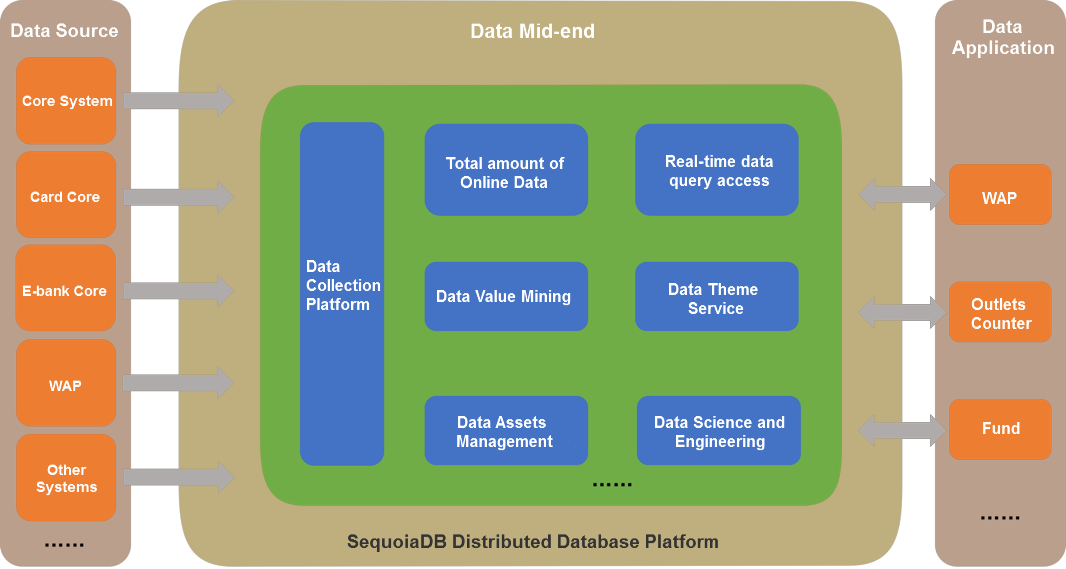The data lake provides real-time online services for full-scale data, with massive data collection, calculation, storage and processing massive data, as well as data science engineering and data mining.
In the past, the data management of banks and other organizations was simply divided into two parts. The online core business and the archive. With the complexity of the business and the massive data growth brought by the Internet and mobile services, the importance of data in governance and mining becomes prominent. Thus data lake has become the focus of today’s financial and large enterprise business.
SequoiaDB uses its support for horizontal scalability, standard SQL protocol, and multi-mode engine to help users manage full-scale data while providing online query and analysis capabilities.

Data Mid-end must be changed to “Data Lake”
Building a new generation of enterprise data lake requires the database platform to provide massive data storage, real-time availability, high-concurrency high-performance access queries, multi-dimensional presentation and management capabilities of multiple types of data. SequoiaDB distributed architecture provides the elastic growth of full-scale data storage, with tools to manage the entire life-cycle of data. The mutli-model data engine of the SequoiaDB provides unified management of structured, unstructured and semi-structured data in data lake. It increases the type and dimension of data management. The natively distributed engine of SequoiaDB provides high-performance, high-concurrency, and real-time query access for enterprise data in the data lake. Thus, It greatly improves the response time of online services.
As the underlying data management platform of a large-scale joint-stock commercial banks, SequoiaDB manages more than 2 PB of massive data. The services include more than 100 business systems such as data online query, data life-cycle management, and post-processing. Data lake could keep the full amount of data online, and help bank customers to query all data records on their account anytime and anywhere through self-service counters, online banking or mobile banking. The multiple types of full life-cycle data help banks better mine value and model, which provide data to support business such as risk control, marketing and artificial intelligence.